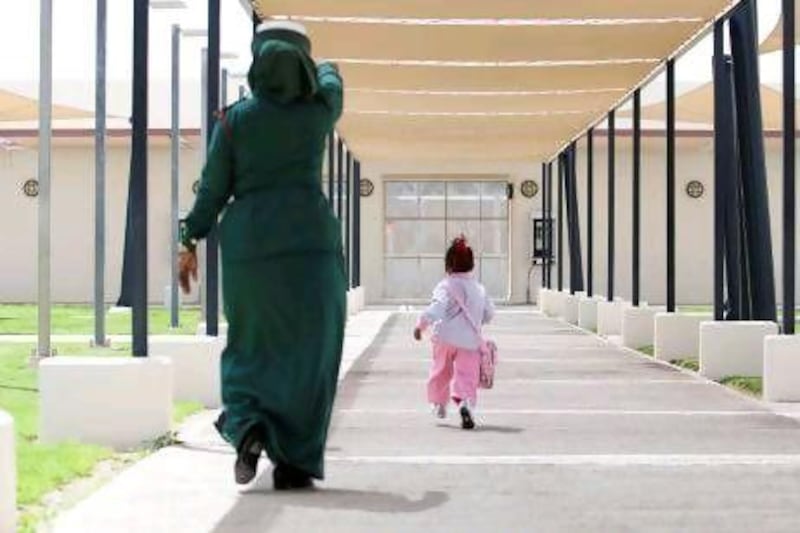DUBAI // A typical day at the Dubai Female Prison begins with a wake-up call at 5.30am. Breakfast is served 15 minutes later.
At 8am the women are transferred either to court or to take part in the various rehabilitation programmes involving sport and education.
These sessions end at 11.45am and the prisoners are then served lunch. The majority rest from 2-4pm, which is the official siesta time.
The inmates are granted an hour's exercise in the prison yard.
Dinner is served at 7pm and lights go out at 10pm - unless it is a weekend or public holiday, when inmates can stay up until 1am. Television is the main form of evening entertainment.
The prison is divided into two buildings, A and B, which are each split into four sections. Inmates are allocated to sections depending on the length of their prison term - though there is a separate wing for mothers. There is no division along national lines, either in sections or cells.
Each section has 72 prison cells. Most cells have six beds - except those cells where prisoners have children, where there are only four beds.
Each wing has a supervisor who is a long-term prisoner.
There is sometimes friction. "The fights are over loud music, TV, hot water. There are some big fights and some small," said a prisoner convicted for murder. "But I just want to serve my sentence and not get involved in fights."
Guards are present around the clock, though Major Soad Saeed, the head of the prison, said fights were usually verbal rather than physical. "Women by nature are not aggressive so we kind of have a peaceful existence despite the crimes they have carried out."
“We do not intervene in each argument that erupts, we monitor from afar and give the inmates a chance to solve their issues between them.
“Many times the problem is solved without our interference, the older inmates explain the procedures for the new ones and it works.”
wissa@thenational.ae
rtalwar@thenational.ae






